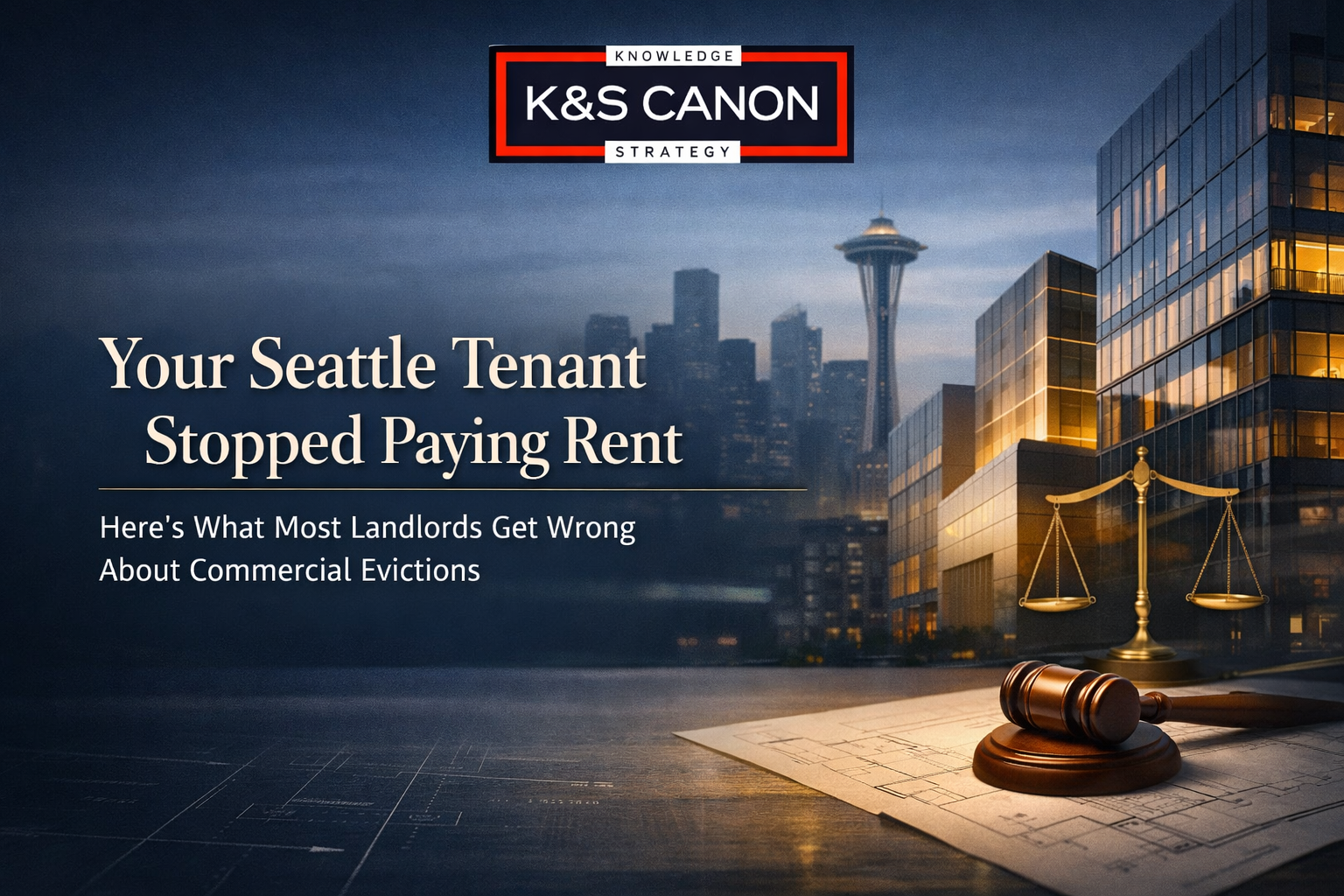Commercial Leasing: Restaurant and Industrial Space Considerations

Commercial lease requirements vary significantly across business sectors. This guide addresses key factors restaurant and industrial businesses should consider when negotiating Washington State lease agreements.
Restaurant Leasing Priorities
Restaurant leases involve unique considerations beyond typical commercial space agreements. The physical infrastructure requirements alone justify specialized legal review before signing.
Kitchen and Equipment Provisions
Kitchen infrastructure specifications form the foundation of any viable restaurant lease. These should outline ventilation systems, grease trap maintenance, gas line capacity, and water supply requirements in detail.
Health department compliance represents another critical area. Lease language should address responsibility for compliance with health codes and food safety regulations. Washington restaurants must adhere to the Washington State Retail Food Code, which imposes specific requirements on food service establishments.
Alcohol licensing compatibility deserves particular attention. Many restaurant concepts rely on beverage sales for profitability, yet some locations face deed restrictions or zoning limitations that affect liquor license approval.
Environmental Considerations
Odor management presents one of the most common dispute areas in restaurant leases. Clear guidelines for managing cooking odors help prevent conflicts, particularly in mixed-use buildings where residential tenants may complain. Cities and counties may have their own codes to regulate odors.
Waste disposal protocols require specific sections for food waste handling, recycling requirements, and grease disposal. These considerations affect both operational costs and regulatory compliance.
Outdoor seating rights can significantly impact revenue potential. Terms regarding sidewalk café permits, patio usage rights, and seasonal outdoor dining areas should be explicitly documented to prevent future disagreements.
The National Restaurant Association reports that incomplete lease provisions regarding infrastructure and code compliance contribute to approximately 30% of restaurant closures in their first year of operation.
Industrial and Warehouse Leasing Essentials
Manufacturing and distribution businesses face different leasing challenges focused on operational efficiency and physical requirements.
Structural Specifications
Depending on your industry specifications, you may need to consider often overlooked factors. For example, floor load capacity represents a fundamental concern for industrial tenants. Weight-bearing specifications must accommodate both machinery and inventory storage needs throughout the lease term.
Ceiling height represents another critical dimension. Documented minimum clear heights must accommodate modern racking systems and equipment. Many industrial operations require at least 24-foot clear heights for optimal efficiency.
Operational Considerations
Power requirements deserve careful attention in industrial leases. Provisions for electrical capacity should specify things like available amperage, three-phase power availability, and substation access where appropriate.
Loading dock access impacts daily operations. Terms regarding loading bay availability, truck court dimensions, and delivery hour guidelines can significantly affect logistics costs and efficiency.
Environmental protocol responsibilities must be clearly defined. This includes potential remediation of pre-existing conditions and compliance with current regulations that may change during the lease term. It is crucial to keep aware of updated regulations.
Industrial lease negotiations frequently focus on modification rights, with a majority of tenants reporting the need for space adaptations during their lease term, according to Area Development.
Washington State Legal Considerations
Commercial leases in Washington State operate under specific legal frameworks that differ from residential leases in important ways. You may want to seek legal counsel to help you navigate these differences.
Washington has eliminated notary requirements for commercial leases, streamlining the execution process. This change particularly benefits businesses with remote signatories or those using electronic signature platforms. However, as a commercial landlord, you may still want to notarize your lease for record.
Seattle ordinances provide additional protections, including limitations on personal guarantees in commercial leases. These local regulations aim to support small businesses by reducing personal financial exposure.
Unlike residential leases, commercial tenant rights in Washington State primarily stem from the lease agreement itself rather than statutory protections. This makes thorough legal review particularly important before signing any commercial lease.
Contact K&S Canon for Your Commercial Lease Legal Needs
Attorney guidance when negotiating industry-specific commercial leases can help secure favorable terms aligned with your business requirements. Contact K&S Canon today to discuss how their legal services can support your restaurant or industrial leasing needs.
Disclaimer: This blog post is for informational purposes only and does not constitute legal advice. Commercial lease regulations may vary by location and change over time. Consult with a qualified attorney for guidance specific to your situation.




